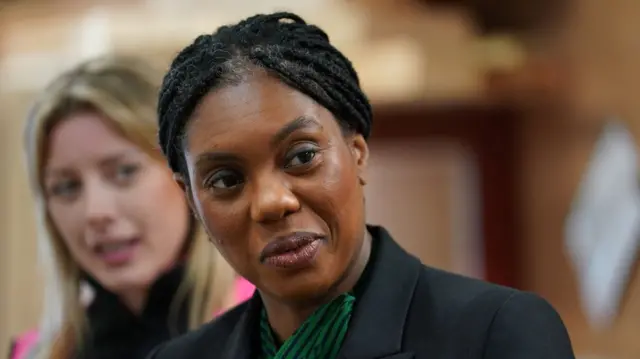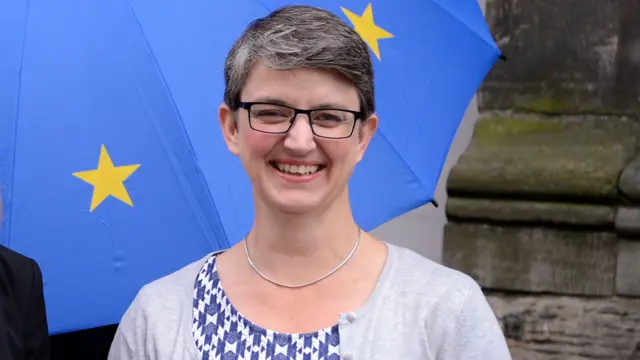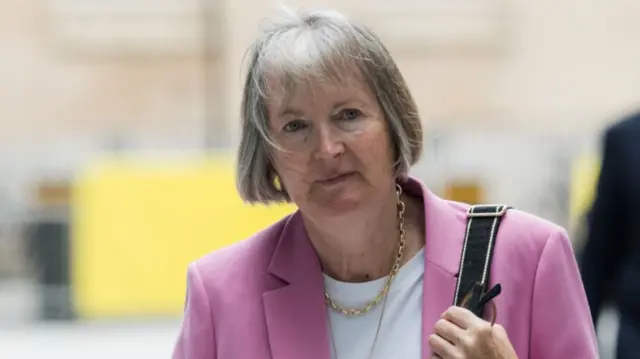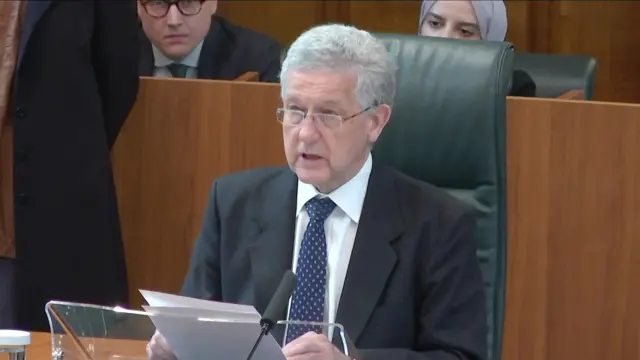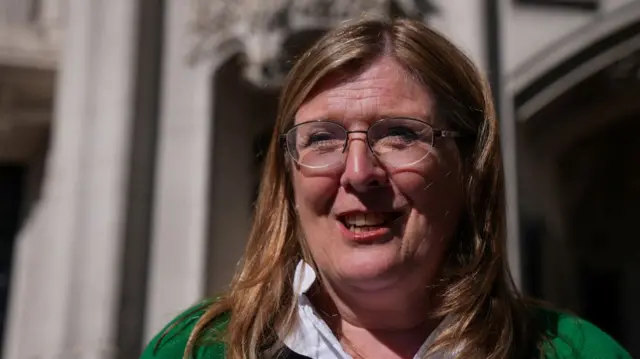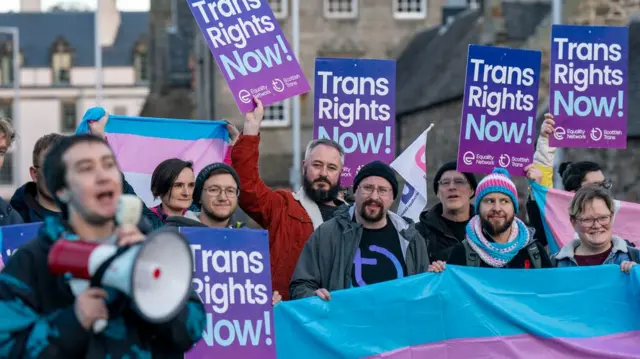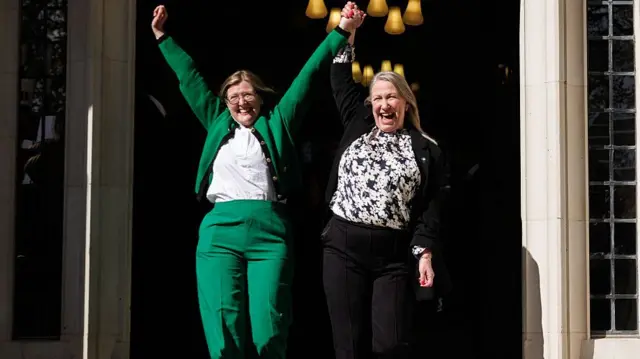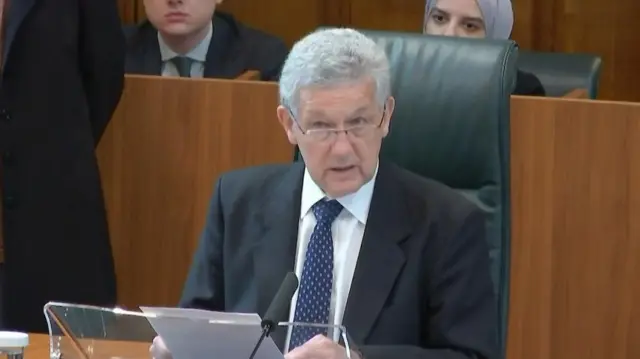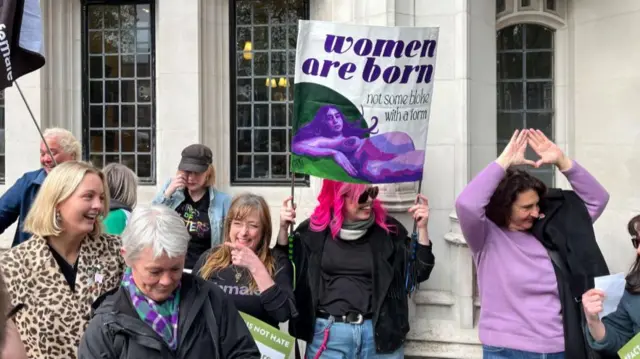Scottish Tories: Ruling a 'victory for women and for common sense'published at 11:46 BST 16 April
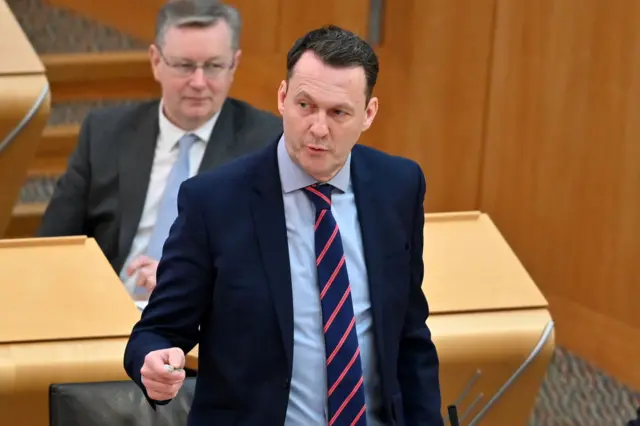 Image source, Getty Images
Image source, Getty ImagesScottish Conservative leader Russell Findlay says the Supreme Court ruling is a victory for women across the United Kingdom, a victory for common sense – and an abject humiliation for the SNP.
“(Scottish first minister) John Swinney now needs to respect women’s rights and get rid of the dangerous gender policies which have become embedded in Scotland’s public institutions," Findlay says.
“This ruling should sound the death knell once and for all for Nicola Sturgeon’s reckless self-ID plans, which Labour, the Liberal Democrats and the Greens shamefully backed to the hilt at Holyrood."
The Scottish government is yet to comment on the ruling.
